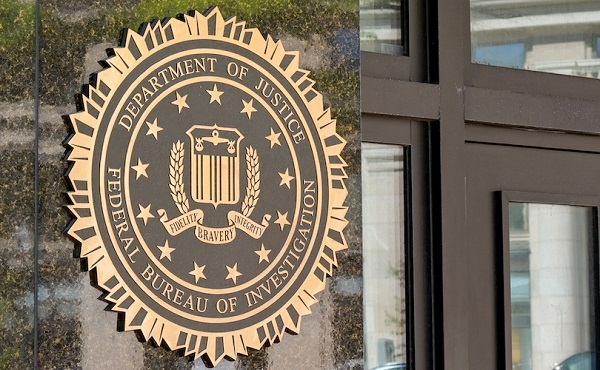Censorship Industrial Complex
Telegram Will Now Share Users’ IP Addresses and Phone Numbers With Governments in Response to Legal Requests

News release from Reclaim The Net

|
Telegram, the messaging app that once positioned itself as the rebel’s answer to Big Tech surveillance, has made a sharp U-turn on the “we protect your data at all costs” highway. On Monday, the company quietly updated its privacy policy to allow for the disclosure of user information—like those precious IP addresses and phone numbers—to law enforcement, but only, of course, if they present a valid legal request.
As we all know, no one has ever stretched the definition of “valid” to fit their agenda, right? This revelation comes hot on the heels of a little incident back in August, when Telegram’s CEO Pavel Durov found himself in handcuffs, detained by French authorities. What was the crime? Well, it appears Telegram was accused of playing hardball with French law enforcement, refusing to hand over data, leading to Durov’s arrest. It seems law enforcement didn’t take kindly to that level of noncompliance, especially after making 2,460 unanswered requests for information. The Policy Flip-Flop The new policy revision is a complete about-face from the one Telegram’s loyal fans were sold on. The old rules were crystal clear. Telegram might give up your details—your IP address and phone number—but only if you were a suspect in a terror case. The policy even reassured everyone that this kind of handover had never happened. Not anymore. Now, Telegram has widened the net. According to the newly revised policy, if you violate Telegram’s Terms of Service—you know, the thing no one ever reads—they may hand over your info if they get a “valid” order. The language is dripping with corporate hedging: “If Telegram receives a valid order from the relevant judicial authorities that confirms you’re a suspect in a case involving criminal activities that violate the Telegram Terms of Service, we will perform a legal analysis of the request and may disclose your IP address and phone number to the relevant authorities.” |
 |
|
Of course, Telegram is still committed to transparency—at least on paper. The company promises to disclose all such incidents in its quarterly transparency reports, which, conveniently, can be accessed via a dedicated bot.
Durov’s Declaration: Aimed at Who, Exactly? Durov took to Telegram to tell users, “We have updated our Terms of Service and Privacy Policy, ensuring they are consistent across the world.” |
 |
|
He continued, “We’ve made it clear that the IP addresses and phone numbers of those who violate our rules can be disclosed to relevant authorities in response to valid legal requests.”Durov further added, “These measures should discourage criminals. Telegram Search is meant for finding friends and discovering news, not for promoting illegal goods. We won’t let bad actors jeopardize the integrity of our platform for almost a billion users.”
The French Connection But what really forced Telegram’s hand? Let’s rewind to Durov’s August airport arrest, where things started to get clearer. After allegedly over 2,400 ignored requests for data, French authorities had had enough. They brought in the National Gendarmerie to get to the bottom of Telegram’s refusal to cooperate. Apparently, turning over data wasn’t an option until they started detaining CEOs. |
|
|
|
Since you’re reading this, we hope you find Reclaim The Net useful. Today, we could use your help. We depend on supporters (averaging $15), but fewer than 0.2% of readers choose to give. If you donate just $5, (or the equivalent in your currency) you would help keep Reclaim The Net thriving for years. You don’t have to become a regular supporter; you can make a one-time donation. Please take a minute to keep Reclaim The Net going.
Thank you.
|
Censorship Industrial Complex
Global media alliance colluded with foreign nations to crush free speech in America: House report

From LifeSiteNews
By Dan Frieth
The now-defunct ad coalition GARM shared insider data and urged boycotts of Twitter to punish non-compliance with its ‘harmful content’ standards, a US House Judiciary report shows.
A new report from the U.S. House Judiciary Committee has shed light on what it describes as an alarming collaboration between powerful corporations and foreign governments aimed at suppressing lawful American speech.
The investigation focuses on the Global Alliance for Responsible Media (GARM), an initiative founded in 2019 by the World Federation of Advertisers (WFA), which the committee accuses of acting as a censorship cartel.
According to the report, GARM, whose members control about 90 percent of global advertising spending, exploited its market dominance to pressure platforms like Twitter (now X) into compliance with its restrictive content policies.
A copy of the report can be found HERE.
The committee highlighted how GARM sought to “effectively reduce the availability and monetization” of content it deemed harmful, regardless of public demand for free expression.
Documents obtained by the committee reveal direct coordination between GARM and foreign regulators, including the European Commission and Australia’s eSafety commissioner.
In one exchange, a European bureaucrat encouraged advertisers to leverage their influence to “push Twitter to deliver on GARM asks.”

Similarly, Australia’s eSafety Commissioner Julie Inman Grant praised GARM’s “significant collective power in helping to hold the platforms to account” and sought updates to “take into account in our engagement and regulatory decisions.”

Robert Rakowitz, GARM’s co-founder and initiative lead, expressed a chilling goal in private correspondence, stating that silencing President Donald Trump was his “main thing” and likening the president’s speech to a “contagion” he aimed to contain “to protect infection overall.”

The report outlines how GARM distributed previously unavailable non-public information about Twitter’s adherence to its standards, fully aware this would prompt advertisers to boycott the platform if it failed to conform. According to the House report, Rakowitz admitted that this information sharing was designed to encourage members not to advertise on Twitter.
He went as far as to draft statements urging GARM members to halt advertising on the platform, telling colleagues he had gone “as close as possible” to saying Twitter “is unsafe, cease and desist.”
Despite the widespread impact of GARM’s actions, including what the committee describes as coerced “concessions” from platforms, internal polling circulated within GARM showed that “66 percent of American consumers valued free expression over protection from harmful content.”
Still, GARM pressed ahead with efforts to “eliminate all categories of harmful content in the fastest possible timing,” ignoring consumer preferences.
Even after GARM dissolved in 2024 amid legal challenges, similar efforts persisted.
A new coalition led by Dentsu and The 614 Group briefly attempted to revive GARM’s mission before disbanding under scrutiny. Gerry D’Angelo, a former GARM leader, reflected on the initiative’s overreach, stating, “Did we go too far in those first rounds of exclusionary restrictions? I would say yes.”
The Judiciary Committee warns that despite GARM’s downfall, the threat of collusion to stifle free expression remains.
It pledged to continue oversight to defend “the fundamental principles” of the Constitution and ensure that markets, not coordinated censorship efforts, shape the flow of information in the digital age.
Reprinted with permission from Reclaim The Net.
Censorship Industrial Complex
FBI urged to release withheld records on Hunter Biden laptop, other ‘Twitter Files’

From LifeSiteNews
By Dan Frieth
Judicial Watch initiated the lawsuit in April 2023, targeting the DOJ, the Department of Homeland Security, and the Office of the Director of National Intelligence
A hearing took place Wednesday, before U.S. District Judge Sparkle L. Sooknanan, in a Freedom of Information Act (FOIA) lawsuit brought by Judicial Watch against the Department of Justice (DOJ).
The case seeks records related to the “Twitter Files,” particularly those involving Hunter Biden’s laptop and allegations of censorship.
The only matter still pending is the FBI’s withholding of records detailing two meetings between agency officials and Twitter representatives from the Biden administration.
Judicial Watch initiated the lawsuit in April 2023, targeting the DOJ, the Department of Homeland Security, and the Office of the Director of National Intelligence.
The legal action followed the FBI’s failure to respond to a December 2022 FOIA request for communications between FBI personnel and key Twitter figures, including Yoel Roth, Vijaya Gadde, and Jim Baker, from June 2020 to December 2022.
These individuals were involved in discussions about suppressing the New York Post’s Hunter Biden laptop story, as disclosed in journalist Matt Taibbi’s December 2022 “Twitter Files.”
Tom Fitton, president of Judicial Watch, expressed strong disappointment: “It is frustrating beyond belief for Judicial Watch to have to go to federal court for basic information on Biden’s abuse of the FBI, using Twitter to censor and monitor Americans.”
Through a mix of FOIA requests and legal action, Judicial Watch continues to document extensive censorship efforts that affected tens of millions of Americans.
In November 2024, it obtained DHS records showing a widespread campaign, by both government and private groups, to police and suppress social media posts concerning election fraud in 2020.
Additional records from June 2024, released through Judicial Watch litigation, revealed that just before and after the 2020 election, state officials flagged alleged misinformation and sent it to entities like the Center for Internet Security, CISA, and the Election Integrity Partnership (EIP), a DHS-backed nonprofit known for targeting online election discourse.
In December 2023, DHS documents exposed coordination between CISA and the EIP to conduct “real-time narrative tracking” on major social media platforms in the run-up to the 2020 vote.
Similar records surfaced in November 2023, showing EIP’s influence over platforms such as Google, Twitter, Facebook, TikTok, Pinterest, and Reddit to suppress “disinformation.”
Reprinted with permission from Reclaim The Net.
-

 COVID-191 day ago
COVID-191 day agoOntario man launches new challenge against province’s latest attempt to ban free expression on roadside billboards
-

 Energy2 days ago
Energy2 days agoThis Canada Day, Celebrate Energy Renewal
-

 COVID-1914 hours ago
COVID-1914 hours agoNew Peer-Reviewed Study Affirms COVID Vaccines Reduce Fertility
-

 Business10 hours ago
Business10 hours agoOttawa Funded the China Ferry Deal—Then Pretended to Oppose It
-

 Alberta1 day ago
Alberta1 day agoAlberta Next Takes A Look At Alberta Provincial Police Force
-

 Alberta2 days ago
Alberta2 days agoCanadian Oil Sands Production Expected to Reach All-time Highs this Year Despite Lower Oil Prices
-

 MAiD12 hours ago
MAiD12 hours agoCanada’s euthanasia regime is not health care, but a death machine for the unwanted
-

 International2 days ago
International2 days agoPresident Xi Skips Key Summit, Adding Fuel to Ebbing Power Theories





